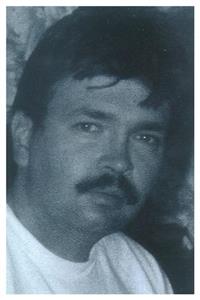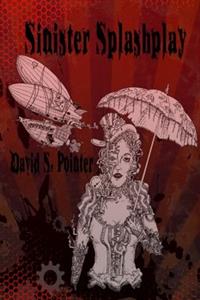
Longtime poet and Murfreesboro resident David S. Pointer recently caught up with the Pulse following the release of his latest book, Sinister Splashplay, a steampunk-inspired collection of abstract but highly visual poems. Here, he talks about his history as a writer, self-publishing, and starting the writing process with a word rather than an idea.
Where are you from? Where did your interest in poetry originate?
I was born in Kansas City, Missouri, and I went into the marines at 18. When I got out, I tested for the San Diego Sheriff’s Department, and my ex-wife didn’t want me to take joint custody to California, so I enrolled in college at Central Missouri and was a criminal justice major/psychology minor and discovered literature. I liked Russian and French writers, Dostoyevsky, Baudelaire and people like that. I looked into academic poetry, and I thought it was too artificial.
I got into sociology with my masters. I wanted to write poems from that perspective. I noticed all these boundaries in the academic world; they were going to write poems on beauty, trivia, mythology. Anything that dealt with politics and economics and uglier truths in the social system—there were certain things that were written about and certain that weren’t written about. I wrote for the underground, but those guys were primarily trying to be the next Bukowski and thought a deal was just down the pike. Poetry as a society is more marginalized that I could ever realize. I might as well tell people I’m an opera singer or ballet dancer; they say, “Oh my God, where’s the exit?”
I decided to focus more on political things, and I like Poe and horror and early generation sci-fi writers who like to mix politics in, but I didn’t have time for all of that. I’m just in working-class America like millions of other people, trying to find the energy to crank out a poem.
What influenced the style and content of Sinister Splashplay?
In 2006 or so, I tried to get into a nursing program to acquire skills to care for my ailing mother. They said, “No, we have a waiting list that’s two to four years. Why don’t you talk to our surgery tech director, he’s looking for male students.” We scheduled an interview, and he said if I was to complete this program, it’d make it easier in the future to get into a nursing program. I signed up to help my mother, but I was in for a week and she passed away. So that was the longest year, probably, of my life. She’d want me to finish this program. It was one of those 16 hour-day programs, but when you’re depressed from losing a loved one . . .

That was just the point where the horror and sci-fi started, without ever planning for it—life unfolding and there it came. Somewhere in there, I discovered the steampunk genre with Victorian influence and machines, and a lot of that appealed to me, especially the applications from the modern world where everything is so corporate, creeping ever closer, cameras everywhere, no privacy, on the computer watching everybody. That was just the thing I started to write about.
I want to work on a dieselpunk-type art project. Sinister Splashplay was primarily steampunk, but I think there was a dieselpunk poem in there. I cranked up the abstraction a little bit. As Jim Morrison said, poetry just ticks off the possibilities. A reader could return to it and say, “Last time, I thought it meant this. Now I think it means this.” It doesn’t mean anything per se; it’s something to ponder, meditation, something that would spark a writer’s creativity.
How has your style and process of writing evolved?
Clarity is something. I had a 96-year-old pen pal, he had one semester of college, and for him, clarity was no problem. Clarity is much harder for me, whereas his first draft maybe makes sense from A to Z. Maybe I have 13 drafts before it makes sense. I do write a lot of different things. I used to try to control the poetry, but I have a different process, and it changed over the years. I sit down with plans of what I’m going to write, and I’ll try to gather a word that motivates me or excites me or I haven’t seen in 20 years. I write it down and get a couple new words to go with it, then I try to think toward the direction of the word, rather than just sit down with the blank page and try to come up with something from nothing. If I take a word rather than an idea, it’s a much easier time. I had these ideas, but what words do you put with them? Some people pop open a dictionary or whatever book’s handy. I keep a notebook, too. I like new words, because it’s interesting to a reader to not just encounter the same words they always see, but not too complex like an obscure medical term.
At what age did you start writing, and who did you like to read?
I started with songs before I knew how to write and had my mother write them down for me.
Edgar Allan Poe was who I really identified with in the poetry. Too bad we lost him so early. I liked Mark Twain as a child, didn’t like Walt Whitman. That was just too advanced, I guess, for a kid. As an adult, that’s wonderful stuff. I guess at age 28, when I was getting my master’s and I took to creative writing for publication, I can look for good in any genre, and maybe when I was in my twenties, I might have dismissed it. I wouldn’t do that today. At almost 52, I would read it and realize writing is always changing to me over the years. There aren’t any rules, so to speak, and so I’m open to anything.
Where did you first get published?
I published my first poem in the Pleiades Journal in 1990 at Central Missouri, and that’s sort of a nationally recognized academic journal now. At the time, they were just resurrecting from a period of inactivity; you didn’t have the national and international competition. Some college students got lucky and got published.
Do you like the poem now?
It just shows me where I was at then. It was fine. I always have some I like better, but I was just happy to be published. At that time, the Internet didn’t exist. I would buy the Poet’s Market each year, and that would have listings for other underground things, and that’s how I’d find “the littles,” as Charles Bukowski would call them.
What are your thoughts on self-publishing vs. an imprint?
You don’t have to wait if you’ve got the computer skills. For most people, self-publishing is a fine option. A publisher will sometimes give you marketing help and things like that, but if you’re young and you want to do your book, get some publishing credits and one other reader to go over your stuff, and decide what style you want, and self-publishing is fine. They still do that at all levels. Let’s say you’re in Nashville doing readings; if you do sell some copies, you recoup your cost and keep the money, whereas books done for example through Amazon will keep two-thirds of that, and the other third goes to the publisher. He doesn’t want to get into accounting to pay writers, so writers get zilch. And you could be waiting years for some tiny publisher to put your stuff out there. You can do your own in weeks rather than years.
Look for Pointer’s new horror poetry book with Spanish translations, Beyond Shark Tag Bay, in spring 2014.
Sinister Splashplay
By David S. Pointer
The autopsy sink sex,
the dissection table dip tank
the mortuary rack romance-
the carcass saw aroma had
the captain ordering estrogen-
secreting tumors for every
morgue workstation tech
heating up on air overload
during the body tray x-ray
expected of organ pirates on
prisoner exchange programs
Goggleers
The steampunk goggles
couldn’t pardon the
ivory-covered opera
glasses of global
economics, so the
band fumed onto a
fogged stage at the
Colony Ship Bar where
two hundred college
radio rockaholics
absorbed and roared
over top hattered
untamed melodically
hissing singers gothic
as Marie Antoinette’s
granddaughter clock
ticking towards a new
celebrated society













